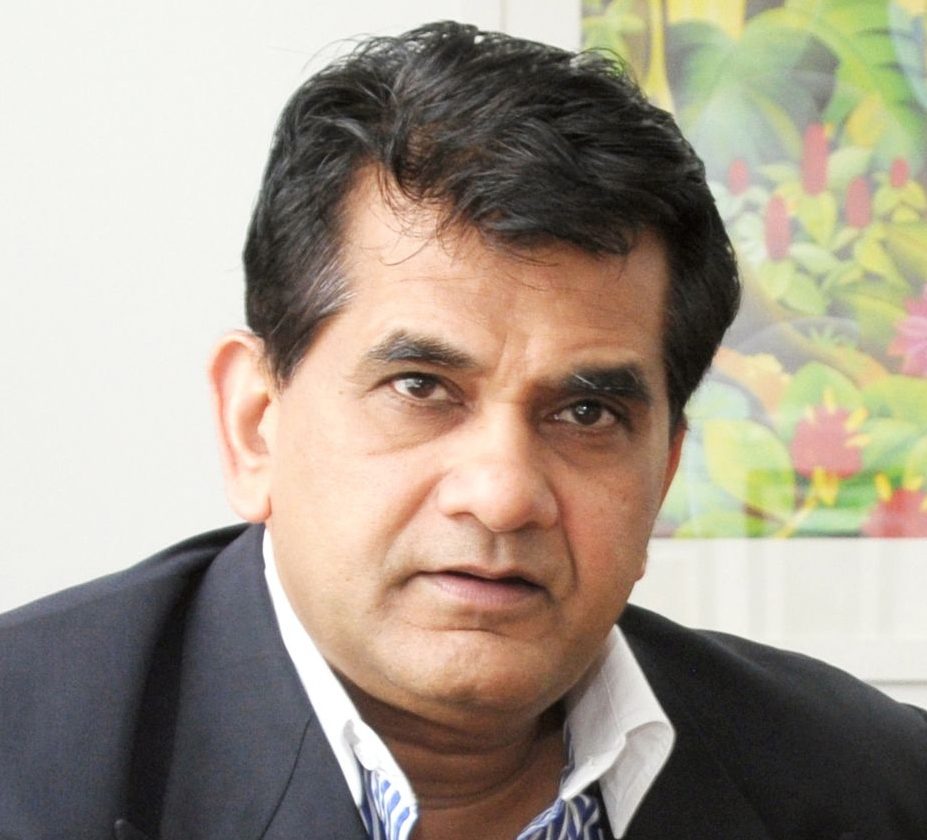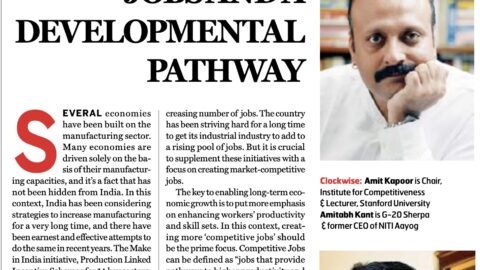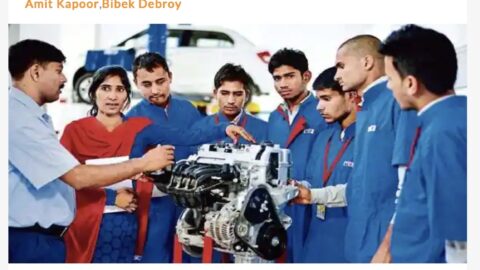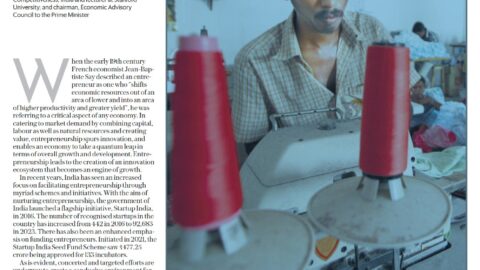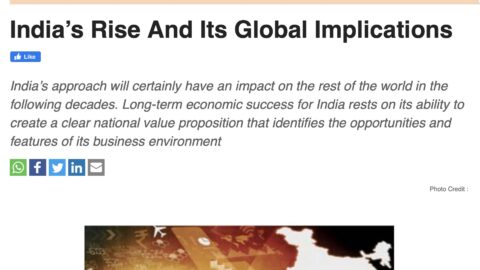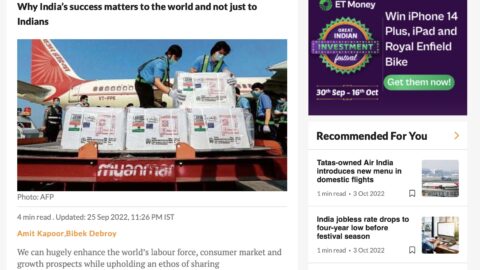The growth journey that India has traversed over the last seven decades has not been simply fortuitous. It is a result of carefully sown seeds of policy reforms and sector-specific action goals embedded in the vision of equitable development and enhancing the lives of the people in
the country. This has been especially true since 2014, whereon excessive focus has been laid
on “Ease of Living”, regional development and cooperative federalism. It is the very vision of collaboration and cooperation that has guided the aims and goals set for the country to put it on the trajectory of a middle-income country and beyond by 2047. As we place ourselves amid the celebrations of the 75th year of our country’s independence, it is only imperative for us to design our growth journey over the next twenty-five years as the world closely follows us.
The genesis of the “India Competitiveness Initiative”, lies in the meeting Prof. Michael Porter had with the Hon’ble Prime Minister and my subsequent visit to Harvard. This project has grown from a dream for India as it enters what will be the most crucial time for its development, growth and prosperity. In this light, Prof. Michael Porter of Harvard Business School has aided the government by preparing this document for India’s competitive strategy as it sets out to achieve the goals for “India@100”.
It is not a matter of only reaching a destination but also how that journey has been made,
and this document supports us in the directions. With geopolitical tensions rising, new unprecedented challenges of health and climate crises facing the international community, and the intensification of networks of interdependence between countries, India is only expected
to present a sustained growth model based on ease of living for its people and ease of doing business for its industries. At the same time, India’s pursuance of becoming a net zero economy will only exemplify its global commitments. With the world constantly changing, India will only rise as a norm creator in the near future.
This national competitiveness strategy is built upon Prof. Porter’s designed framework on competitiveness that is based on the idea of productivity, meaning an economy’s capability to mobilise its available labour force and other assets to generate value. For a country like India, with its vast demographic advantage, productivity also implies that the labour force is engaged in productive economic activities and that they are not marginalised from the very source of growth — jobs. Making multiple entry points for the labour force with their varied skill sets is one of the priority areas for the country. This needs to be complemented with structural, institutional and ecological reforms to ensure that India becomes a holistically resilient economy. Such arduous tasks also require concerted efforts from all pillars of our governance ecosystem — legislature, executive and judiciary — as well as from all levels of government, including state and local government support, to carry out these tasks. With the involvement of multiple stakeholders, the recommendations suggest multi-pronged actions at the level of analysing the evidence of leakages in our economy, which will further drive what kind of goals we prioritise. As reiterated, a clear strategic decision regarding the nation’s competitive strategy and value will offer crucial guidance to ensure that particular policies are in line, that activities are prioritised, and that responses to shifting conditions remain compatible with a long-term aim.
This project has been a knowledge project, and it has been an honour to host Prof. Michael Porter for the lecture series conducted at NITI Aayog. It has also been a pleasure to be a
part of the series of stakeholder meetings that had been organised at NITI Aayog. Above
all, it has been an utmost pleasure for us to be able to collaborate with Prof. Michael Porter, Christian Ketels and Amit Kapoor in formulating this roadmap for India’s growth trajectory by its centennial year, to delineate the form and shape of the Indian economy and to establish the kind of principle changes required for the transformation we are foreseeing. The document has set high stakes for everyone involved in the government and administrative machinery to uphold our country’s remarkable economic journey and to leap higher to achieve our ultimate aim of shared prosperity.

